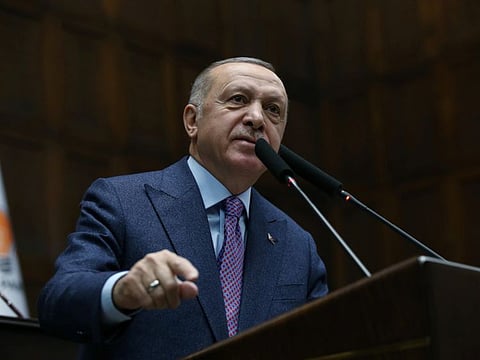Turkey needs to reconsider its regional strategy
Erdogan’s destabilising actions threaten wider wars in the region

After four years of cosy relations and multiple one-on-one meetings, Russia and Turkey seem to have grown apart. Turkish President Recep Tayyip Erdogan has apparently overplayed his hand.
In 2015, Turkey shot down a Russian fighter jet to which Moscow retaliated with mostly economic sanctions. Months later, Ankara managed to calm down the angry Russians and began to play by the Kremlin rules. The two countries became sort of allies with similar anti-western objectives and a shared interest in the stability of Syria.
However, the role Turkey has been playing in Syria in the past few years may have given Erdogan the false impression of invincibility. Nowadays, he is looking at a very different reality.
Turkey has been challenging Russia in Syria. While the Russians support the Syrian army in its final push to regain control of the last rebel-held enclave, the northwestern city of Idlib, Ankara invaded the border area to protect and arm the extremists in the area. The Turkish army’s attempt to attack Syrian army positions earlier this month led to the death of several Turkish soldiers. So far this month, Turkey lost 16 soldiers in its miscalculated incursion in Syria. Losing patience with their former allies, the Kremlin sounded another public warning.
It is hard to understand the roots of Erdogan’s regional adventures. But obviously he is getting very good at alienating and provoking all parties.Gulf News
As if this is not enough reason for Erdogan to reconsider his ill-conceived power games, he somehow opened a second front against the Russians: in Libya. On Saturday, the Turkish president admitted that he sent Turkish arms and Syrian mercenaries, mostly remnants of the Islamist militias Turkey supported all along in Syria, to war-ravaged Tripoli to fight against the National Army, led by Khalifa Haftar, who is backed by Moscow. The Turkish move violates the Libyan truce agreements, which Ankara itself co-mediated with Moscow.
It is hard to understand the roots of Erdogan’s regional adventures. But obviously he is getting very good at alienating and provoking all parties — his insistence on buying Russian air defences angered his American allies and the rest of the Nato alliance. His bizarre policy of intervening in the internal affairs of Arab countries won him the wrath of the Arabs, especially his support for the Muslim Brotherhood in their pursuit of destabilising Egypt and other countries. His unilateral attempt to redraw the maritime borders antagonised his neighbours, mainly Greece.
Turkey needs to reconsider its Middle East strategy. The power-hungry politics and destabilising actions of its president threaten more and wider wars in a region that still is trying to recover from catastrophic conflicts.



